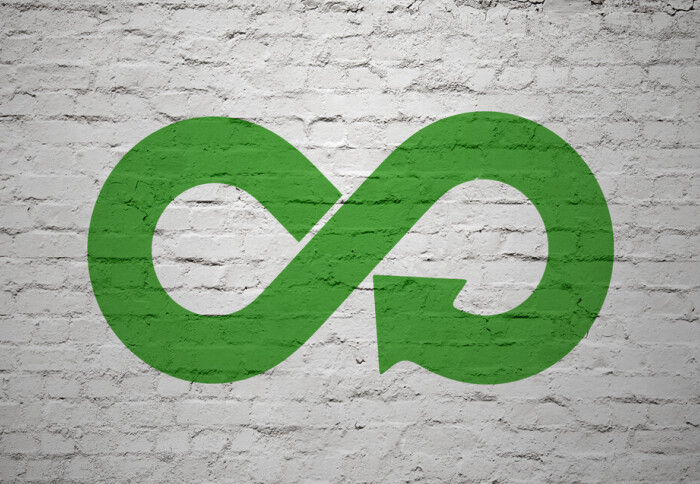Making militaries more sustainable and resilient
by Jack Cooper

So aim sustainability and Advanced Material start-up Uplift360, a member of the Institute for Security Science and Technology's Innovation Ecosystem.
The world’s militaries and the industries that provide their equipment are estimated to generate 6% of all global CO2 emissions [1].
If the world’s militaries were a nation, they would be the fourth most polluting nation, behind only China, the United States, and India [2]. The US military alone produces more CO2 emissions than Sweden, Finland, and Denmark.
Any effort to reduce global CO2 emissions and mitigate the effects of climate change must therefore make the world’s militaries a priority. This has long been a political challenge, with nations not wanting their security to be threatened by climate action: emissions of military forces were excluded from the 1997 Kyoto Protocol and made optional in the 2015 Paris Climate Agreement.
Recent global events, such as Covid-19 and the Ukraine conflict , have highlighted the fragility of global supply chains as well as vulnerabilities in the resiliency of the world’s militaries.
Start-up Uplift360, a member of the Institute for Security Science and Technology’s Innovation Ecosystem, is tackling this problem head-on as the first company to develop technology using circular economic principles to regenerate and recycle advanced materials in the defence and security sectors.
The Circular Economy is an economic system of closed loops in which raw materials, components and products are given new or renewed life through the application of circular principles. The principles are: eliminate waste and pollution; keep products and materials in use; regenerate natural systems.
Advanced materials are materials that are specifically engineered to exhibit novel or enhanced properties that confer superior performance relative to conventional materials. Advanced materials are key for high-performance applications within the military and are most often incinerated or landfilled rather than being recycled.
For example, approximately 12,000 commercial aircraft are due to reach their natural end-of-life in the next two decades. By weight, most of these aircraft are made of up to 50% fibre reinforced polymer composite materials such as glass fibre reinforced polymer. It is estimated that 90% of glass fibre reinforced polymer waste is landfilled.
Advanced materials therefore represent a key opportunity for reducing military emissions, and a prime target for a circular economy model.
"In a world that has a finite amount of material resources, we enable defence to secure their supply chain by developing low energy technologies to regenerate and reuse materials for as long as possible. This reduces our reliance on other nations whilst also reducing our environmental impact. We are also looking at new ways to design products so that the materials can be more readily available for reuse, and developing new materials that are lightweight and high strength while also having less reliance on fossil fuels for their production." - Sam Staincliffe, Uplift360 Chief Technology Officer and Co-Founder
This focus on advanced materials means there are also many applications for Uplift360’s work outside of defence. Defence may be one of the largest users of advanced materials but there are many other sectors with the same material requirements, including the automotive, aviation, outdoor, and construction sectors.
Uplift360 co-founders Sam Staincliffe and Jamie Meighan were first drawn to the issue of military emissions by the specific problem of body armour waste.
Body armour is a vital piece of equipment used in the defence, security, and humanitarian sectors with over 2 million units being produced each year, sometimes with an upwards cost of £2000 per unit; the next body armour procurement for the UK is valued at £330 million . Body armour generally only has a shelf life of 5 years, at which point it is usually incinerated.
Most body armour is made from highly advanced materials, such as para-aramid (commercial names include Kevlar and Twaron), carbon fibre, and ceramics: materials that can be incredibly expensive with large environmental footprints.
For instance, para-aramid can cost 80 times more than steel and its embodied energy, a calculation of all the energy used to produce it, is often more than 1400MJ/Kg compared to cotton’s 100MJ/Kg. Carbon emissions for the production of aramids stands at 1.27 million tonnes of CO2 per year and it would take 15 million tree seedlings grown for 10 years to offset this.
Economically and environmentally, it is a huge waste to incinerate or landfill these materials and products at the end of their life.
“This is a wonder material and yet we landfill or incinerate on a mass scale costing millions of pounds causing extraordinary impact to our environment. In the new geopolitical world we face, we no longer have reliance on supply chains with certainty. Defence recognised this and that’s why we have their support.” – Jamie Meighan, Uplift360 Chief Executive Officer and Co-Founder
With Imperial College London being a centre for excellence in material sciences, climate research, and defence technology, Uplift360 felt the Institute for Security Science and Technology’s Innovation Ecosystem was a natural fit for them.
“Success in defence in any part of the world is built around partnerships. The Institute for Security Science and Technology’s Innovation Ecosystem allows small companies to connect with the wider industry, academia, and the public sector, convening on technology developments that will support national defence. We’re incredibly vocal about collaboration across sectors, partly because we’re an enabling technology but also because circular economics cannot exist in isolation: partnerships are key to achieving success.” - Sam Staincliffe, Uplift360 Chief Technology Officer and Co-Founder
Article text (excluding photos or graphics) © Imperial College London.
Photos and graphics subject to third party copyright used with permission or © Imperial College London.
Reporter
Jack Cooper
College Headquarters